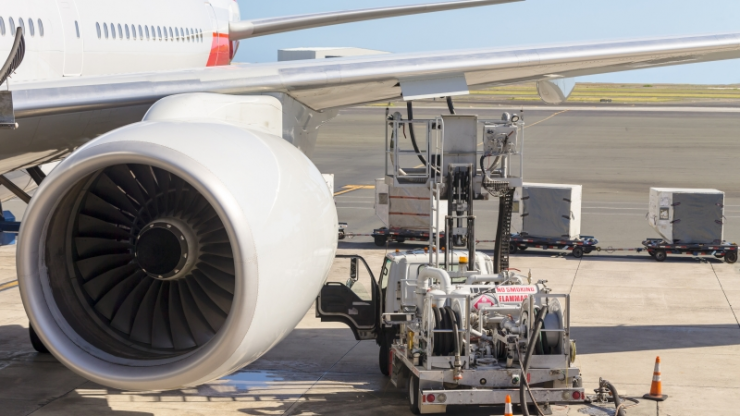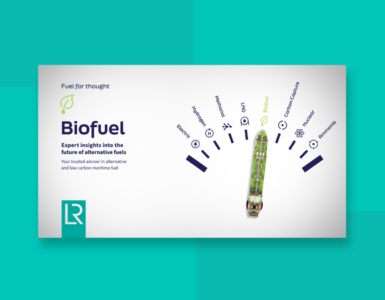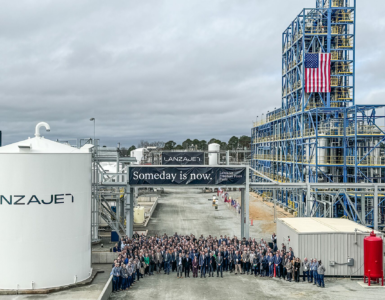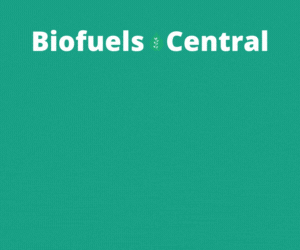Advanced biofuels can replace used cooking oil in aviation.
[EurActiv] Pressure is growing on EU lawmakers to ensure agricultural and waste residues are legally required in the production of green jet fuel to prevent a reliance on imported used cooking oil.Campaigners from industry are pushing for a sub-mandate for certain biofuel feedstocks to be added to the ReFuelEU Aviation regulation, a legislative proposal put forward by the European Commission to cut flight emissions.
Under ReFuelEU Aviation, airlines refuelling in EU airports would be required to uplift kerosene blended with a set percentage of sustainable aviation fuels (SAFs), which are derived from second-generation biofuels and electro-fuels.
🔥 What about we co-host a webinar? Let's educate, captivate, and convert the biofuels economy!
Biofuels Central is the global go-to online magazine for the biofuel market, we can help you host impactful webinars that become a global reference on your topic and are an evergreen source of leads. Click here to request more details
The percentage of SAF that must be mixed with kerosene would be ramped up over time, moving from 5% in 2030 to 63% by 2050 under the Commission’s proposal.
But ReFuelEU has led to concerns that much of the SAF mandate will be met through the processing of used cooking oil. Most advanced biofuel feedstocks require novel technology to refine into jet fuel, making them more costly than used cooking oil, which can be refined using mature processing technology.
Used cooking oil has proven controversial in recent years, with questions raised over the quality of imports. Green campaigners fear that virgin palm oil, which has been linked to deforestation in tropical countries and is restricted in the EU, may be mixed with genuine waste oils to boost UCO quantities.
Around 1.5 million tonnes out of 2.8 million tonnes of UCO were imported into the EU in 2019 according to clean mobility NGO Transport & Environment, with around a third coming from China.
Proponents say a sub-mandate for feedstocks listed in Part A of the Renewable Energy Directive’s Annex 9 would send a signal to companies to start investing in SAF production from these sources, alleviating the need for UCO.
Included in the Commission’s current proposal is a sub-mandate for the use of e-fuels in the SAF mix, which campaigners say could be replicated for certain advanced biofuel feedstocks.
The Advanced Biofuels Coalition LSB is calling on lawmakers to amend the ReFuelEU proposal to include a 2.7% sub-target for Part A biofuels by 2030, scaling up to 30.5% advanced biofuels by 2050.
Marko Janhunen, chair of the Advanced Biofuels Coalition and director at UPM Biofuels, told EURACTIV:
The Commission states in the SAF proposal that advanced biofuels are indispensable to make the aviation sector more sustainable.
“For industry, a dedicated, long-term target for advanced biofuels within the SAF proposal is indispensable to get investment decisions on new capacity made”
“It is essential to create the right framework conditions for these investments – the de facto ban of Internal Combustion Engines shows how quickly, unfortunately, policies can change,” he added.
The European Waste-based & Advanced Biofuels Association (EWABA) has similarly called for the inclusion of a sub-mandate for all non-waste lipid feedstocks in Part A of Annex 9, saying the current proposal suffers from “faulty design”.
EWABA Secretary General Angel Alberdi told EURACTIV:
The proposed SAF blending mandate as currently drafted over-relies on waste lipids, especially from part B of Annex 9, in the critical 2025-2035 period
“It would completely thwart much needed investment in technologies processing advanced feedstocks from part A (and e-fuels) while at the same time diverting feedstocks from existing more efficient uses with higher GHG savings in the road and maritime sectors,” he added.
EWABA has come out strongly against the ringfencing of used cooking oil feedstocks for SAF production, arguing that UCO is already being used to make low-carbon fuel for cars, trucks, and ships, meaning its redeployment to aviation would leave a shortfall in other transport areas.
The International Council on Clean Transportation (ICCT), a non-profit organisation, has also expressed the need to ramp up biofuels produced from Part A of Annex 9 to meet SAF demand, though stopped short of demanding a sub-mandate.
Concerns
Green MEP Ciarán Cuffe, a member of the European Parliament’s transport committee, believes that any advanced biofuel feedstock given the greenlight at EU level must be subject to enforcement to ensure it is sustainably sourced, something he said has been lacking to date.
However, the Irish MEP argued that the focus on biofuels as a means to decarbonise planes is misplaced.
This story continues, follow the link below to keep reading.
Advanced biofuels can replace used cooking oil in aviation, industry says, source
READ the latest news shaping the biofuels market at Biofuels Central








